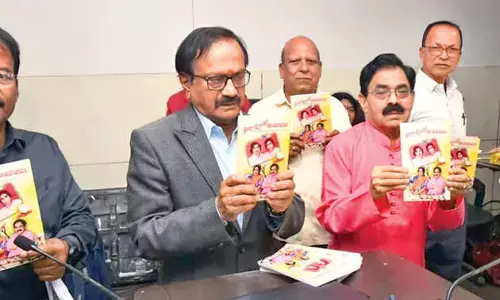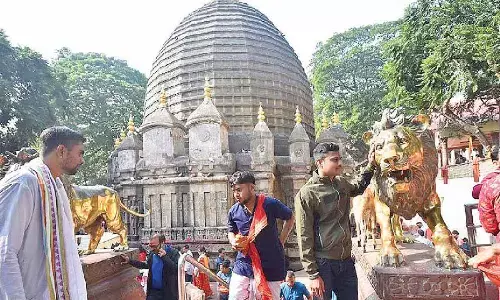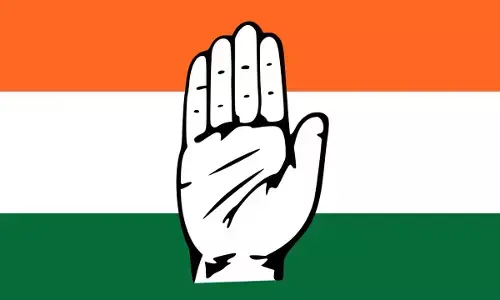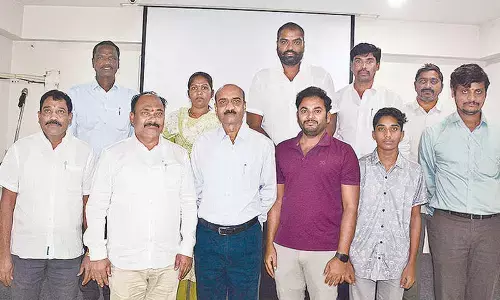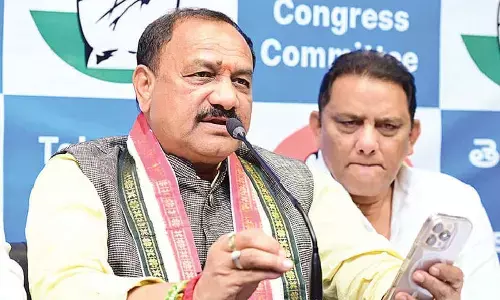How Delhi can drive Nepal's policy of strategic diversification
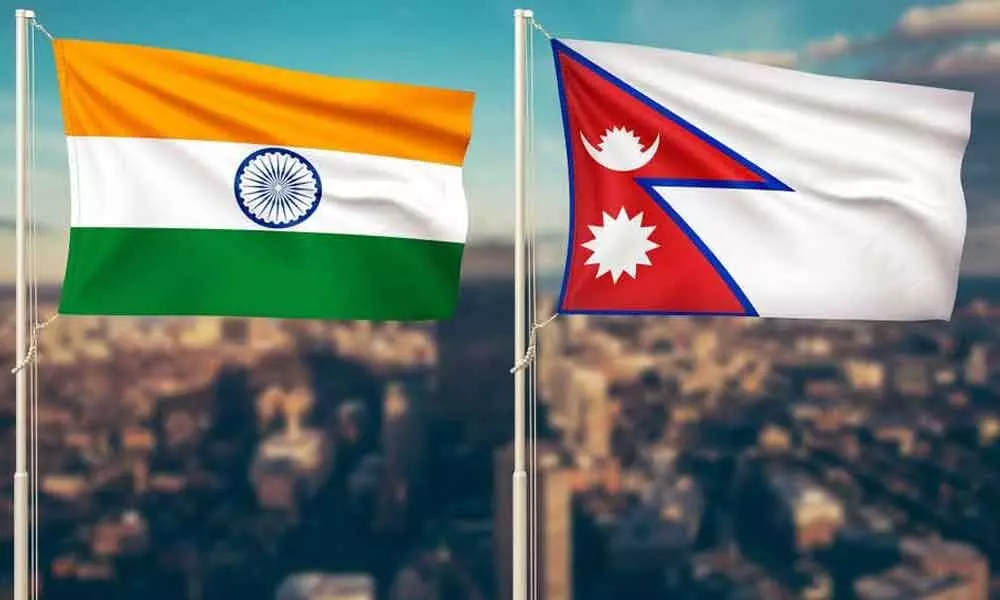
Nepal Prime Minister Sher Bahadur Deuba is set to arrive in India on a three-day visit on April 1, aimed at inking cross-border connectivity and healthcare projects.
Nepal Prime Minister Sher Bahadur Deuba is set to arrive in India on a three-day visit on April 1, aimed at inking cross-border connectivity and healthcare projects. Additionally, it has also been reported that Deuba and his Indian counterpart Narendra Modi are likely to inaugurate the Kurtha-Jayanagar Railway Project, a 35-km stretch that will link Kurtha in Nepal to Jayanagar in Bihar.
India and Nepal share a deep historical bilateral relationship which has continued to strengthen over time, given the high number of geopolitical and geoeconomic convergences between the two.
The outstanding border issues between the neighbours are also likely to be discussed during Deuba's visit, thus opening doors for a productive dialogue on the same and contributing towards a rejuvenated relationship between New Delhi and Kathmandu.
As Nepal tries to vie for a policy of strategic diversification aimed at reducing external dependence, the visit has the potential to further strengthen the relations between the two neighbors, provide room for India to be the driver for Nepal's domestic growth and confront the existing issues of divergence.
It will also boost Indian government's commitment to its Neighborhood First policy and secure a stable relationship with Nepal in an otherwise volatile environment in the region marred by the Russia-Ukraine crisis and Chinese aggression.
Boosting Connectivity: Building on the Janakpur Bond
As per reports, the key project that the two sides shall be inaugurating during Deuba's India visit is the Kurtha-Jayanagar railway project, part of the 68.72 km Jayanagar-Bijalpura-Bardibas rail link built under the aegis of the Indian government at a grant assistance cost of NPR 8.77 billion.
With its inauguration, the railway project will establish the first modern railway network in Nepal and provide a much needed boost in bilateral trade, investment, people-to-people exchange, tourism and cultural diplomacy, and strengthening the overall connectivity between the two countries.
Addressing the handing over ceremony of the railway link in 2021, the Nepalese Physical Infrastructure and Transport Minister had remarked that the project will bring modernisation in Nepal's railway system.
India and Nepal share a deep historical relationship that has widened over the years and the Kurtha-Jayanagar railway project builds on a major cultural and religious bond - the Janaki Mandir in Janakpur, Nepal.
This temple, widely revered by Hindus for pilgrimage in countries like India, Nepal, Sri Lanka etc., will receive a huge tourism and financial impetus due to the inauguration of the railway link. The reason for its importance for Hindus across the world stems from the fact that Lord Ram's wife Sita was identified to be born in Janakpur, thus linking Ayodhya in India (Lord Ram's birthplace) and Janakpur in Nepal.
Thus, the Kurtha-Jayanagar railway link will serve as the new foundation for a renewed India-Nepal relationship that will extend to other areas as well. Testimony to this can be attached due to the fact that during Deuba's planned visit, other projects including, but not limited to launching of 137 health posts in the aftermath of 2015 Nepal Earthquake through Indian assistance, are also set to be launched that will further enhance the bilateral relationship.
In this regard, India and Nepal have done well to rejuvenate and reboot their relationship in the last one year through various measures, thus sowing the seeds for a productive visit by Deuba. In 2021, India had gifted Nepal one million domestically manufactured Covishield vaccines to contain the spread of coronavirus.
New Delhi also provided grant assistance of Rs 30 crore (approx.) to Nepal for the reconstruction of educational institutions rocked by the 2015 earthquake.
In a goodwill gesture, the Indian government conferred General Prabhu Ram Sharma of Nepal with the rank of 'General of Indian Army' during his visit to India in 2021. Also, at the end of 2021, Indian Foreign Minister had announced the completion of construction of 50,000 houses that had been earlier destroyed in the wake of the 2015 earthquake in Nepal.
Lastly, three power substations built by India at a Line of Credit of $250 million were also executed recently in March. Such measures have made sure that Nepal receives adequate amounts of grant assistance in areas critical to its economic recovery in a post-pandemic world. The visit by Deuba will provide further momentum to bilateral trade and investment between the two countries through connectivity and infrastructure projects.
Driving Nepal's policy of strategic diversification
Nepal has been facing a dilemma in its bid to balance its dependence on foreign powers since its inception. In recent years, its tenacity and commitment to achieving strategic diversification, wherein it reduces its dependence and at the same time, receives grant assistance in critical areas without getting caught in-between a geopolitical powerplay, has increased. India, being Nepal's longest and most trusted friend, now has the opportunity to drive this policy shift while strengthening its own bilateral relationship with Kathmandu.
Firstly, on the economic front, India and Nepal's infrastructure projects and grant assistance in various sectors will serve as a major source of income and investment for Kathmandu, which will in turn help it achieve economic growth. This will reduce its dependence on foreign aid and loans that may increase the risk of future debt-traps and strategic leverages that undermine its geopolitical independence.
Plus, India's 'grant assistance model' will make sure that Nepal receives investment in a legitimate way without compromising its economic independence.
At the same time, this visit should also be utilized for identifying further areas of cooperation in the realms of energy, connectivity and maritime domains. In this context, the meeting of Indian External Affairs Minister S. Jaishankar with his Nepali counterpart Narayan Khadka on the sidelines of the 18th BIMSTEC Ministerial Meeting in Colombo was fruitful and the regional forum can be further leveraged to drive deeper convergences between India and Nepal and its regional partners like Bhutan, Bangladesh, Myanmar, Sri Lanka and Thailand.
This will also ensure India's commitment to the Neighborhood First policy and strengthen its Act East and Indo-Pacific policies.
Finally, New Delhi needs to make sure that it hits the right notes during Deuba's visit and addresses the elephant in the room that currently exists in the form of border disputes with Kathmandu. To achieve this, both sides should aim to establish a joint mechanism to resolve the border issue at the earliest possible - the revival of the 2014 idea floated by Narendra Modi for foreign secretary-level talks for this purpose can definitely be explored again.
While ensuring Nepal's economic growth, such an overture will also help India secure its national interests at a time when it is facing Chinese aggression across the Line of Actual Control (LAC).
India's former Ambassador to Nepal, Shyam Saran's words are telling in this regard, "Stability in Nepal is in the best interests of India."








